How to start your own music venue

To celebrate Independent Venue Week we meet a new wave of evangelists, who are energising the live music scene and bringing bands to previously neglected areas of the country.
The outlook for live music fans over the last few years has been bleak, with an estimated 40% of music venues in London closing over the last decade, a pattern repeated nationwide. But there are signs of recovery, with new places opening - and it's easier than you think.
Steve Lamacq, who's taking his show on a tour of indie venues from Mon 23 to Fri 27 Jan, says: "Now, more than ever, it's important to support small, grassroots venues around the country, because, while a lot of them continue to thrive, we’ve seen many of them shut down and many still under threat."
The fourth annual Independent Venue Week, featuring a host of live music happenings across the UK, sees a record 145 venues taking part. Such ventures are one reason why the climate for live music is improving, albeit slowly. Ultimately, running your own venue takes dedication, tenacity and an all-consuming passion for live music, as these three enthusiastic newcomers reveal.
Mumford & Sons’ Ben Lovett is the founder of Omeara, the latest addition to London’s live music scene. Since opening in October, the 325-capacity venue has already played host to The Pretenders, Biffy Clyro and Mumfords themselves.
Rachel Smillie is the owner and director of The Glad Cafe, a small not-for-profit venue in the southside of Glasgow with a focus on nu-folk and experimental music.
Julian Bigg is the co-owner of the compact and bijou Ramsgate Music Hall, which over the last few years has attracted high-calibre acts such as Neneh Cherry, Wire and The Jungle Brothers to “darkest Kent”. Here's how they did it.
1. Follow your dreams
Julian: “We had the idea of starting our own venue while driving back from the ATP festival in Minehead in 2012. It was such a pain that there were no gigs close to us [in east Kent]. About six months later we’d bought a property! We really didn’t think it through, but in some ways that naivety worked to our advantage.”
Ben: “Even before the latest round of venue closures it felt like there was a lack of venues in London that approached things as more of a cultural than a commercial enterprise. The dream was to have a venue that hosted seminal performances, that people talked about in the same way as The Marquee or The 100 Club.”
Rachel: “In 2009, my daughter took us to Cafe Oto in London. I was very taken with it, particularly the way it was managing to bring in people from diverse backgrounds and age groups while putting on live music nearly every night of the week. The southside of Glasgow where we’re from certainly didn’t have anything like that. We started putting on gigs in various venues in the area to see if there was an appetite, and that garnered a lot of interest and ideas, so that was the beginning of it all.”

2. See the potential in a dingy warehouse
Ben: “My brother-in-law heard about a site that was becoming available under the arches by London Bridge. So I went and stood in this raw, damp cavernous space. You could hear the train rolling overhead and it seemed a bit bleak. I thought: this is going to take a lot to turn into a world-class venue. But it also had enough potential to build up a plan.”
Julian: “There weren’t many vacant properties in the Ramsgate area that would have been right. Essentially we bought an old derelict warehouse that had been empty for about four years. Because it was an absolute pigsty, we gutted it totally and rebuilt it to our own specifications.”
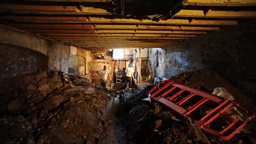
3. Explore all avenues of funding... especially your own savings
Rachel: “My husband and I were in a fortunate position in our lives that we’d been left a little bit of money. We had a ‘friend group’ who contributed £15,000, we borrowed £20,000 from friends and family, and at the last minute Social Investment Scotland loaned us £40,000 and that made the development of the building possible.”
Julian: “Initially it was all personally funded. It was a mid-life crisis for four middle-aged men! If we'd have known how much it would ultimately cost - about £330,000 - we probably wouldn’t have done it. But once you’ve bought a building and there’s no way back, it’s amazing how much you can raise through enthusiasm and positivity. About 60 per cent was funded by the original partners and then we borrowed the rest through a combination of private sources and the Regional Growth Fund.”
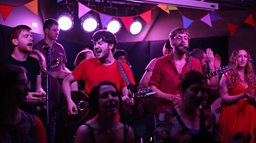
4. Get the neighbours onside
Ben: “The first and most important thing was to figure out the noise mitigation, both coming in from the trains and going out to the local community. We had to figure out a way to make this place silent from the outside, and that when you’re in there listening to an acoustic performance, you don’t hear the sirens of the city. So we ended up building a complete floating room within a room to make it work.”
Rachel: “The roof of our building forms the bin shelter of a neighbouring tenement. Unfortunately, there are steel beams which carry sound up through the tenement. Our neighbours were all very against another music venue coming in and really fought it with the planning department, but after inviting them all to a meeting we were able to put in a strong application. We were allowed to open up provided that there was no music after 11 o’clock and that we put in some serious soundproofing.”
5. Don’t skimp on the sound
Julian: “I’m always shocked by the poor sound quality of other venues. The prerequisite with ours was to make the best listening experience that we could. We spent a lot of time, thought and money on acoustics and sound.”
Ben: “Acoustics are crucial. Although the main room at Omeara appears to be parallel and rectangular, it’s actually all asymmetrical, which helps enormously with the sound reflection.”
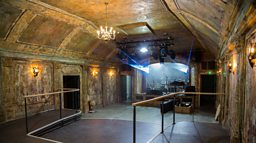
6. Establish a strong musical identity
Rachel: “That was very important. We wanted to get a name for experimental styles, electronic music and nu-folk - music that wasn’t represented anywhere in this part of Glasgow. We were also very keen to create a listening environment. It drives me crazy if I go to a gig and people are there to party and not to listen to the music!”
Julian: “It’s about pleasing ourselves. We bring down bands we want to see. We’ve learned not to put on bands that we’re not really sure about, that have been pushed to us by booking agents, because they might not sell anyway.”
7. Look after the performers
Ben: “From first-hand experience, I’ve noticed that a lot of venues in the UK expect artists to put up or shut up with the amenities. Whereas in continental Europe, they really do a good job with the back-of-house. Often you have to kill four or five hours at a venue and you don’t want it to be a broom closet.”
Julian: “We look after the bands really well, we send them round the corner for a meal at an award-winning Indian restaurant. It’s the attention to detail: the sound, the layout, the hospitality, it all helps the artists relax. They’re the golden egg, because without bands you don’t have anything. And they all talk to each other.”
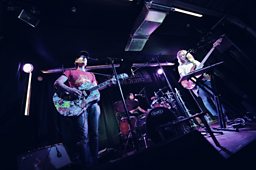
8. Think about offering more than just music
Ben: “Omeara is a music venue, but it’s also a bar and somewhere to eat as well. We’re paying rent 365 days a year so we do need to be trading every day. But it’s not a binge-drinking club, it’s somewhere you can discover new food and drink in the same way you can discover new music.”
Rachel: “Originally there was no way I wanted to run a cafe! But it just seemed to be an intrinsic part of the whole thing and it’s allowed us to develop a name for ourselves as a bit of a community and creative hub.”
9. Don’t expect to make your fortune
Rachel: “We mainly run at a loss and have had to take extra loan funding to keep us on track. We think we’ve reached a point where it is sustainable, however we’ve just been told that the council have increased our rates threefold, so we’re currently challenging that. The rates people did come out and have a look and hopefully they’ll acknowledge that it’s crazy to try to put places like us out of business. Sometimes we get a little bit of project funding from Creative Scotland but that doesn’t really address our core costs. Trembling Bells and Alasdair Roberts are putting on a fundraising gig for us in February, which is great.”
Julian: “[Ramsgate-based dub legend] Adrian Sherwood told us that we were 50 capacity too small to make money - which is a little bit annoying once we’d opened! But it’s true. Our achilles heel is our size, but it’s also the best thing about us. We survive because I do everything for free. We can’t afford to pay for a booking agent, or a marketing manager or a designer, so I do it myself, alongside my day job. We were actually pretty close to breaking even last year.”
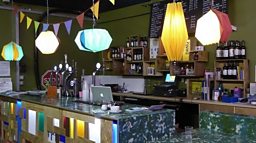
10. Just go for it!
Rachel: “It will absorb most of your life, but it will be very exciting and you’ll make a lot of interesting friends along the way.”
Julian: “It’s a labour of love, there’s no way around it. All independent venues are run by people who are in love with live music. It’s a hobby that takes 35 hours a week - but to me it’s worth it, because we are doing something to help the music scene and bring live music to others. There’s nothing like seeing a great band play in a great-sounding venue with a good vibe.”
Ben: “I would massively encourage anyone to do this. You need a lot of tenacity because you don’t launch a music venue on a whim. But it is possible. There are tens of thousands of fantastic musicians coming through in the UK and they need places to play. So we need people to build these venues, and to attend them as well. Having places where people can convene for these moments of escapism or revelation is more important in 2017 than it ever has been.”

